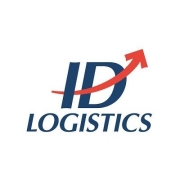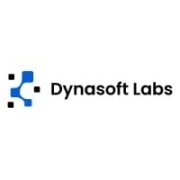eCommerce Platforms streamline online retail operations, offering businesses tools to manage inventory, process payments, and improve customer experience seamlessly.
These platforms empower enterprises with comprehensive solutions that integrate with CRM and ERP systems, promoting improved data analysis and customer interaction. Key functionalities often include marketing automation, logistics management, and secure checkout options. Solutions also emphasize scalability to support businesses of all sizes as they grow. Users widely recognize the flexibility in customization and ease of integration with other technologies.
What are the critical features of eCommerce Platforms?In retail, eCommerce Platforms cater to diverse industries including fashion, electronics, and groceries, each adapting to its unique needs. For instance, fashion retailers benefit from high-quality templates, whereas electronics businesses prioritize detailed product information and specifications. Grocery services focus on logistics and timely deliveries, facilitated by the platform's robust supply chain features.
eCommerce Platforms are essential for organizations looking to maintain a competitive edge in the digital marketplace. They provide a robust infrastructure that simplifies complex operations, allowing businesses to focus on strategic growth and customer satisfaction.
| Product | Market Share (%) |
|---|---|
| Adobe Commerce | 10.3% |
| Salesforce Commerce Cloud | 9.9% |
| SAP Commerce Cloud | 9.0% |
| Other | 70.8% |































































































Every eCommerce seller should have an ecommerce platform to sell online. Not only does having your own website diversify your online presence, but it protects your brand from being at the mercy of any single marketplace, and will give you the opportunity to increase profit margins and conversions.
Having an ecommerce platform to sell your goods or services will also help you grow your customer base and further strengthen your brand. Beyond that, eCommerce platforms offer multiple advantages, such as an omni-channel experience with reduced risk, and increased marketing opportunities.
Some of the biggest benefits of using an eCommerce platform to sell online are that it helps your customers engage with your brand to get the products they need, it ensures your employees have the tools to properly execute sales and marketing strategies, and it protects your bottom line in terms of sales growth, in addition to the cost of maintenance and installation. What’s more is you can reduce costs per sale by having your own online store, benefit from private labeling, and gain the freedom to sell wherever your customers are.
Essentially, eCommerce platforms ensure scalable, long-term growth. In addition, they give you full control of your own site, making it easier to manage all aspects of it, help you with marketing and sales efforts, and also help operations run more smoothly.
Integrated eCommerce is the integration between an eCommerce website and its backend systems, such as a CRM system or an ERP system. With eCommerce integrations, the need to manually enter the same information (such as inventory counts) into more than one system (ERP systems and eCommerce applications) is eliminated. As brick-and-mortar stores become less critical and companies embrace online sales, the need for eCommerce integration is steadily increasing.
Integrating an eCommerce website is fairly simple. Essentially, there are three ways to integrate a given eCommerce platform:
Some of the top benefits of using a fully integrated eCommerce platform include:
Features to look for when choosing an eCommerce platform include:
Using a cloud-based eCommerce Platform provides scalability and flexibility, allowing you to easily manage traffic spikes and expand your business without heavy infrastructure investments. You can benefit from automatic updates, ensuring your online store is equipped with the latest features and security. Additionally, cloud platforms often offer robust integrations with other tools and services, enhancing your store's functionality and offering a seamless experience to customers.
How do I choose the right eCommerce Platform for my business?When choosing an eCommerce Platform, consider your business size, target market, and specific needs. Assess features like payment gateways, customization options, SEO capabilities, and customer support. It's crucial to evaluate the platform's scalability to avoid migration costs as your business grows. A trial period or detailed demos can help you experience the platform's usability and determine if it aligns with your business goals.
Can I integrate existing business tools with my eCommerce Platform?Most modern eCommerce Platforms offer robust APIs and integration capabilities, allowing you to connect existing tools such as CRM systems, marketing automation, and inventory management. Integrating these tools can streamline operations, improve data consistency, and enhance customer engagement. Ensure the platform you choose supports integration with the specific tools you rely on to smooth out your business processes.
What security measures should I look for in an eCommerce Platform?Security is crucial for protecting online transactions and customer data. Look for an eCommerce Platform that offers SSL certificates, PCI compliance, and advanced fraud detection tools. Two-factor authentication and regular security updates are also important to safeguard your online store. Ensuring your platform has these measures in place will help build trust with your customers and protect your business from data breaches.
How do eCommerce Platforms enhance customer experience?eCommerce Platforms enhance customer experience by providing intuitive navigation, fast load times, and mobile optimization, which are essential for user satisfaction. Features like personalized product recommendations, easy checkout processes, and multiple payment options help attract and retain customers. Additionally, seamless integration with social media and review systems can boost engagement and improve your overall brand presence online.